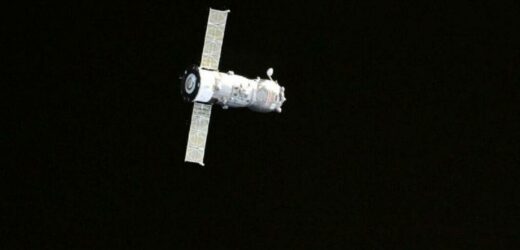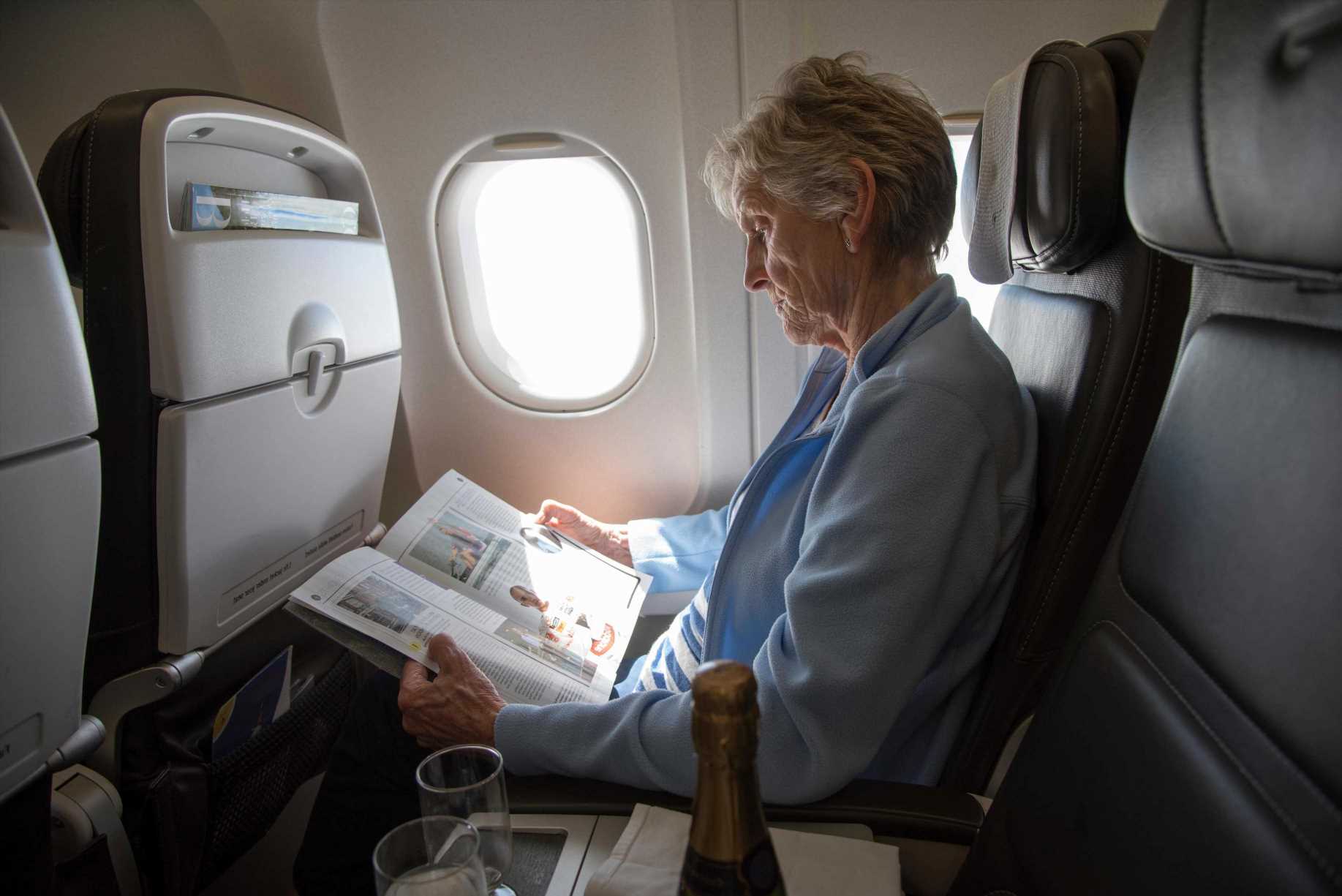NASA: Particles leak from Soyuz spacecraft
We use your sign-up to provide content in ways you’ve consented to and to improve our understanding of you. This may include adverts from us and 3rd parties based on our understanding. You can unsubscribe at any time. More info
The leak of coolant from an uncrewed Russian supply ship earlier this month was caused by a micrometeor impact and not a manufacturing flaw, Roscosmos has announced. The Progress MS-21 cargo vessel, which has been docked with the International Space Station (ISS) since October, was seen to lose pressure on February 11. The issue arose mere weeks after a similar coolant leak developed on the Soyuz MS-22 crew capsule, rendering the craft too hot for three astronauts to safely use to return to Earth.
Roscosmos had attributed the December leak from Soyuz MS-22 to a tiny impactor penetrating the capsule’s exterior radiator, causing coolant to issue out into space.
The fact that a similar leak went on to occur on another Russian capsule, however, raised concerns that both could have been caused by a construction defect or design issue.
Following an investigation involving both Roscosmos and NASA engineers, however, the Russian State Space Corporation has concluded that both incidents were — coincidentally — the result of “external impacts”.
In support of this, Roscomos has shared a close-up photograph of the Progress MS-21 capsule, which shows a 0.5-inch-diameter hole punched in the craft’s external radiator.


Having ruled out a flaw in their space capsules, Roscosmos has now approved plans to dispatch a “rescue ship” to the ISS tomorrow, to eventually bring home the three astronauts stranded when the damaged Soyuz MS-22 was deemed unsafe for a crewed flight.
At present, the ISS is currently playing home to seven astronauts, but only has docked with it one viable capsule, capable of evacuating four people, to serve as a “lifeboat” in the event of an emergency.
MS-22 transported Commander Sergey Prokopyev and Flight Engineer Dmitry Petelin of Roscosmos and NASA Flight Engineer Francisco Rubio up to the ISS last September.
They were joined on the space station in October by NASA’s Josh Cassada and Nicole Mann, Russia’s Anna Kikina and Japan’s Koichi Wakata.


While the replacement crew capsule — Soyuz MS-23 — will arrive at the ISS on Sunday, it will be travelling, uncrewed, on automatic.
Accordingly, even though they will once again have a route home, Petelin, Prokopyev and Rubio will need to extend their stay in the orbiting laboratory until Roscosmos is in a position to dispatch another Soyuz capsule with the crew due to replace them.
Having expected to return to Earth near the end of next month, the trio will now be remaining in orbit until at least September — bringing their mission duration up to nearly a whole year, as compared to the typical six month turns astronauts serve on the space station.
In a statement, Roscosmos said that the extended stay would pose no health risks for the astronauts, who are reported to have taken the news of their mission extension “positively”.
The micrometeorite-damaged Soyuz MS-22 capsule, meanwhile, will return to Earth next month without a crew. Progress MS-21, meanwhile, undocked from the ISS last Friday and is in a stable flight path awaiting deorbiting and destruction during atmospheric re-entry.
DON’T MISS:
Man unearths family’s buried treasure from WW2 after following map [REPORT]
Heat pump blow as Government blamed for ‘disappointing’ £450mn scheme [INSIGHT]
Vibrating capsule that ‘stirs colon to action’ alleviates constipation [ANALYSIS]

Also this week, Roscosmos has said that Russia will be extending its participation in the International Space Station programme until 2028.
The announcement is a reversal of their stated intent last year, in which Roscosmos head Yuri Borisov said that Russia was planning to withdraw from the ongoing project after 2024 and would be concentrating on building its own space station instead.
NASA and its other partners expect to continue operating the ISS until 2030. It will likely be replaced by a commercial facility in low-Earth orbit, while the space agency moves on to developing the “Lunar Gateway” which will facilitate exploration of the Moon and beyond.
Following the tensions resulting from Vladimir Putin’s invasion of Ukraine last year, the ISS remains one of the last remaining areas of cooperation between Russia and the West.
Source: Read Full Article


